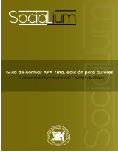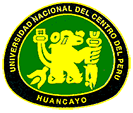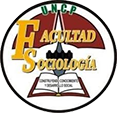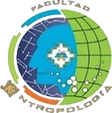Intercultural dialogue in development processes in the Yanesha and Asháninkas communities in the central jungle
DOI:
https://doi.org/10.26490/uncp.sl.2021.5.1.824Keywords:
interculturality, education, health, developmenAbstract
The objective of the study is to compare and describe the intercultural processes that occur in the Yanesha and Ashaninkas groups in the central jungle of the Peruvian territory, as efforts to achieve progress towards development, the method used was ethnographic and open interviews and participant observation aimed at native leaders and authorities in the area, were the investigation techniques. For the analysis, the strategies implemented in the health and education sectors were taken into consideration through some programs implemented by the different levels of government, from which various instruments and guidelines have been developed to promote an inclusive intervention with an intercultural approach, however, in practice, intercultural gaps remain, the indigenous population does not feel part of the development processes. The results show that it has not yet been possible to establish an adequate intercultural dialogue in the development processes in the central jungle since the exclusion and devaluation of the indigenous population persists in the face of other actors, with greater inequality and less dialogue in the Ashaninka communities, as well as Intercultural bilingual education, which represents an important space for dialogue, barely reaches 30% and in health the cultural relevance is highly centralized.
References
Cárdenas, C., Pesantes, M. y Rodríguez, A. (2017). Interculturalidad en salud: reflexiones a partir de una experiencia indígena en la Amazonía peruana. Anthropologica, 35(39), 151-169. http://www.scielo.org.pe/scielo.php?pid=S0254-92122017000200007&script=sci_abstract
Cházaro, E. (2014). Interculturalidad y educación intercultural en México. Sinéctica, (43) 01-02. http://www.scielo.org.mx/scielo.php?pid=S1665109X2014000200011&script=sci_arttext
Hasen, F. (2012). Interculturalidad en salud: Competencias en prácticas de salud con población indígena. Ciencia y enfermería, 18 (3), 17-24. http://dx.doi.org/10.4067/S0717-95532012000300003
Instituto Nacional de Estadística. (2019). Datos estadísticos de población. Instituto Nacional de Estadística. http://www.ine.es/jaxiT3/Datos.htm?t=3156
Manríquez, M., Fernández, C., Rebolledo F. y Figueroa, V. (2018). Salud Intercultural en Chile: Desarrollo histórico y desafíos actuales. Revista salud pública, 20 (6), 759-763. https://doi.org/10.15446/rsap.V20n6.65625
Ministerio de Educación. (2017). Plan Nacional Intercultural Bilingüe al 2021. Sistema de Información de tendencias nativas en América Latina. https://www.siteal.iiep.unesco.org/bdnp/517/plan-nacional-educacion-intercultural-bilingue-al-2021
Olivera, I. (2017). Nuevos escenarios, nuevas propuestas, otras actoras: licenciadas indígenas y la Universidad Veracruzana Intercultural. Anthropologica, 35 (39), 75-98. http://dx.doi.org/10.18800/anthropologica.201702.004
Pedrana, L., Alves, L., Garnelo, M., Oliveira, M. y Carvalho, S. (2018). Análise crítica da interculturalidade na Política Nacional de Atenção às Populações Indígenas no Brasil. Revista Panamericana de Salud Pública, 44 (100), 1-9. https://doi.org/10.26633/RPSP.2018.178
Restrepo, E. (2018). Etnografía: alcances, técnicas y éticas. Universidad Nacional Mayor de San Marcos. https://www.aacademica.org/eduardo.restrepo/3.pdf
Sistema Nacional de Información Ambiental. (2010). Mapa etnolingüístico del Perú, 2010 [mapa]. Portal SINIA. https://sinia.minam.gob.pe/mapas/mapa-etnolinguistico-peru-2010
Santos, F. y Barclay, F. (1995). Órdenes y desórdenes en la selva central. Historia y economía de un espacio regional. Editorial IEP/IFEA/FLACSO.
Tamayo, M. (2008). El Proceso de la Investigación Científica. (4ª ed.). Limusa.
Trapnell, L (2017). Las voces de los conocedores y conocedoras de los pueblos originarios en la formación docente. Anthropologica, 35(39), 57-74. http://dx.doi.org/10.18800/anthropologica.201702.003
Tubino, F. (2012). Rostros y fronteras de la identidad: Del interculturalismo funcional al interculturalismo crítico [Archivo PDF]. Pontifica Universidad Católica del Perú. https://red.pucp.edu.pe/ridei/wp-content/uploads/biblioteca/inter_funcional.pdf
Yeckting, F. (2017). Situación de riesgo y salud de los adolescentes en el valle de los ríos Apurímac, Ene y Mantaro en Perú. Revista Peruana de Medicina Experimental y Salud Publica, 34 (2), 273 - 279. https://doi.org/10.17843/rpmesp.2017.342.2867
Downloads
Published
Issue
Section
License
Copyright (c) 2021 Máximo Marcelo Quispe López, Percy Saúl Reina Orosco

This work is licensed under a Creative Commons Attribution 4.0 International License.








.jpg)















